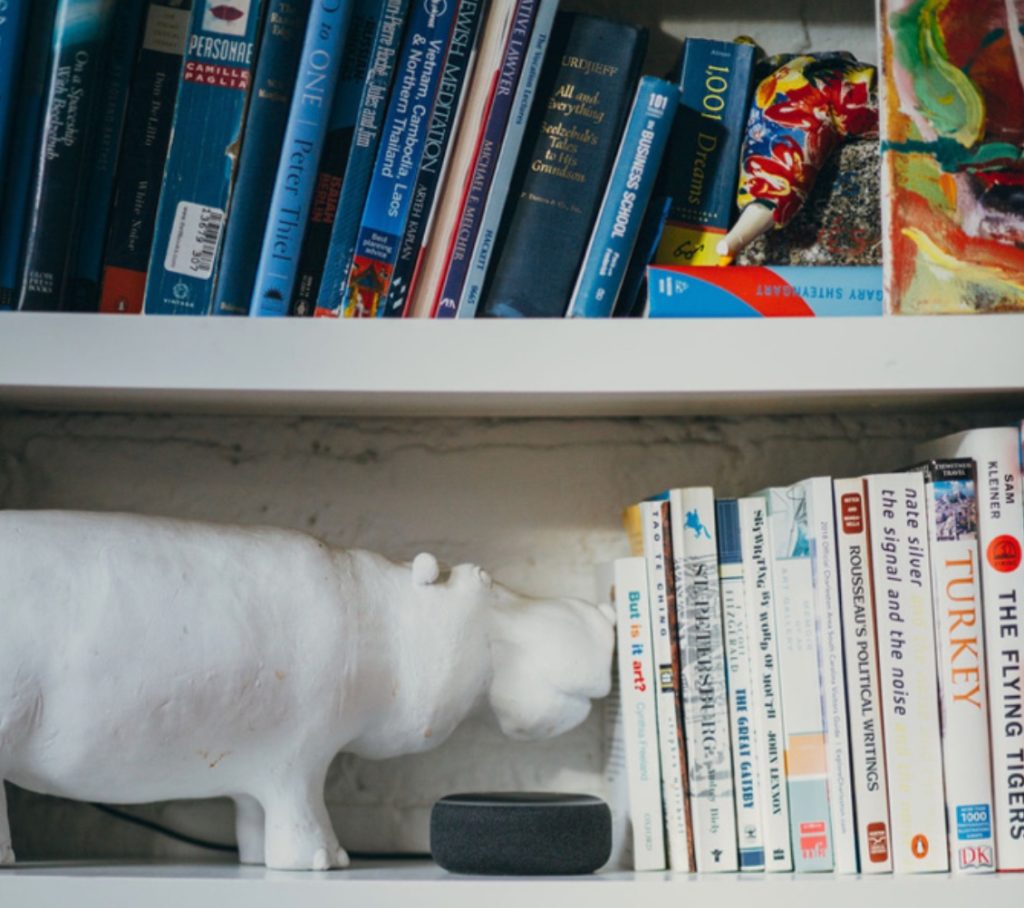There has been a lot of news on Alexa privacy recently. Here is what you need to know to understand how Alexa actually works and gets better every day — and how you can easily control what level of Alexa privacy you want.

The 5 key privacy points:
#1. Alexa is always listening for the wake word, but that’s it
(The wake word is Alexa unless you have changed it to a custom Alexa wake word.)
It’s important to make the distinction between always listening and always recording. Alexa only starts recording after she hears her wake word. Alexa is not recording all of your private conversations.
You may wonder why Alexa needs to record you at all. Here’s why: in order to process what you have asked for when you say “Alexa, what’s the weather?” and give you a helpful response, Alexa needs to send what you said to the Amazon cloud. That’s where the actual analysis — taking your voice recording’s sound waves and figuring out a response — happens.
#2. You know when Alexa is recording because the blue ring on top of your Echo will light up
As soon as Alexa hears the wake word, she does two things: she starts recording and lights up the blue ring on your Echo. Alexa was designed to show you when she is recording.
What about when you wake up Alexa unintentionally? This happens all the time to most of us. In those instances, you might not be paying attention to your Echo and might not notice the blue ring.
But at some point Alexa will respond and pipe in with some irrelevant piece of information since you didn’t mean to wake her in the first place. So you’ll know she was recording and processing what you were just saying (and you can always easily delete an Alexa recording).
#3. It makes sense for humans to help train Alexa to better understand humans
Recent reporting around Alexa privacy has pointed out that Amazon uses human input to help improve Alexa. This is a good thing. Technology alone cannot effectively and rapidly train Alexa to understand human speech — to really improve Alexa, you need to humans to help, too.
Here’s how human input to improve Alexa works… Amazon workers listen to an extremely small sample of Alexa voice recordings, transcribe and annotate them and then feed them back into the software. The goal of this process is to help Alexa better understand people’s Alexa requests. Access to internal tools that provide access to customer data is “highly controlled” and “granted to a limited number of employees who require these tools to train and improve” Alexa, according to Amazon.
You may have read that certain Amazon workers can access a device’s location data when they are annotating voice recordings from that device. And you may wonder why that’s necessary. It’s because workers need location data to help Alexa get better at answering questions in which location is relevant, such as the weather or helping you find a nearby restaurant to have dinner.
#4. You have full control over your Alexa privacy settings
You can opt out of letting Amazon use your data to improve Alexa — and that disables any human review of your Alexa recordings
Don’t want recordings of your Alexa interactions to be used to improve Alexa as part of the process described in #3? Don’t like the idea of humans listening to your Alexa recordings? No problem. Just follow the steps below to opt out:
- Open the Alexa app
- Tap the hamburger icon in the upper left corner
- Tap Settings
- Tap Alexa Account
- Tap Alexa Privacy
- Tap Manage How Your Data Improves Alexa
- Set the toggles to the off setting by tapping them
You can also permanently delete your entire history of Alexa voice interactions
To easily delete recordings of everything you said today, just say “Alexa, delete everything I said today” and the day’s voice interactions with Alexa will be deleted.
To delete your entire history of voice interactions or just a few specific ones, follow these easy steps:
- Follow steps 1 – 5 above
- Tap Review Voice History
- Select date range from drop-down menu (can be today, all history or custom to specify any range in between)
- Tap Delete All Recordings for [Your Selected Date Range] or check off specific recordings and tap Delete Selected Recordings
Amazon recently announced that soon you’ll be able to delete your the last thing you said to Alexa by saying “Alexa, delete what I just said.” I’ll update this post once that feature is live.
Privacy is a personal decision
I do not utilize either of the privacy restrictions above. There’s generally a trade-off between increased levels of privacy and user experience, and with Alexa it’s no different. If you allow Alexa to know more about you, she will probably be able to better help you.
Amazon gives you privacy control
Regardless of what you decide, you control what level of privacy you want. To learn more about your Alexa privacy settings, check out The 5 Alexa Privacy Tips You Need To Know.
#5. What about privacy failures?
The few reported Alexa privacy failures have come from random and highly improbable events. You may have seen this one from December or this one from last May. The December incident was a case of random human error on the part of an Amazon employee, while May’s incident resulted from a highly improbable series of events that seriously confused Alexa.